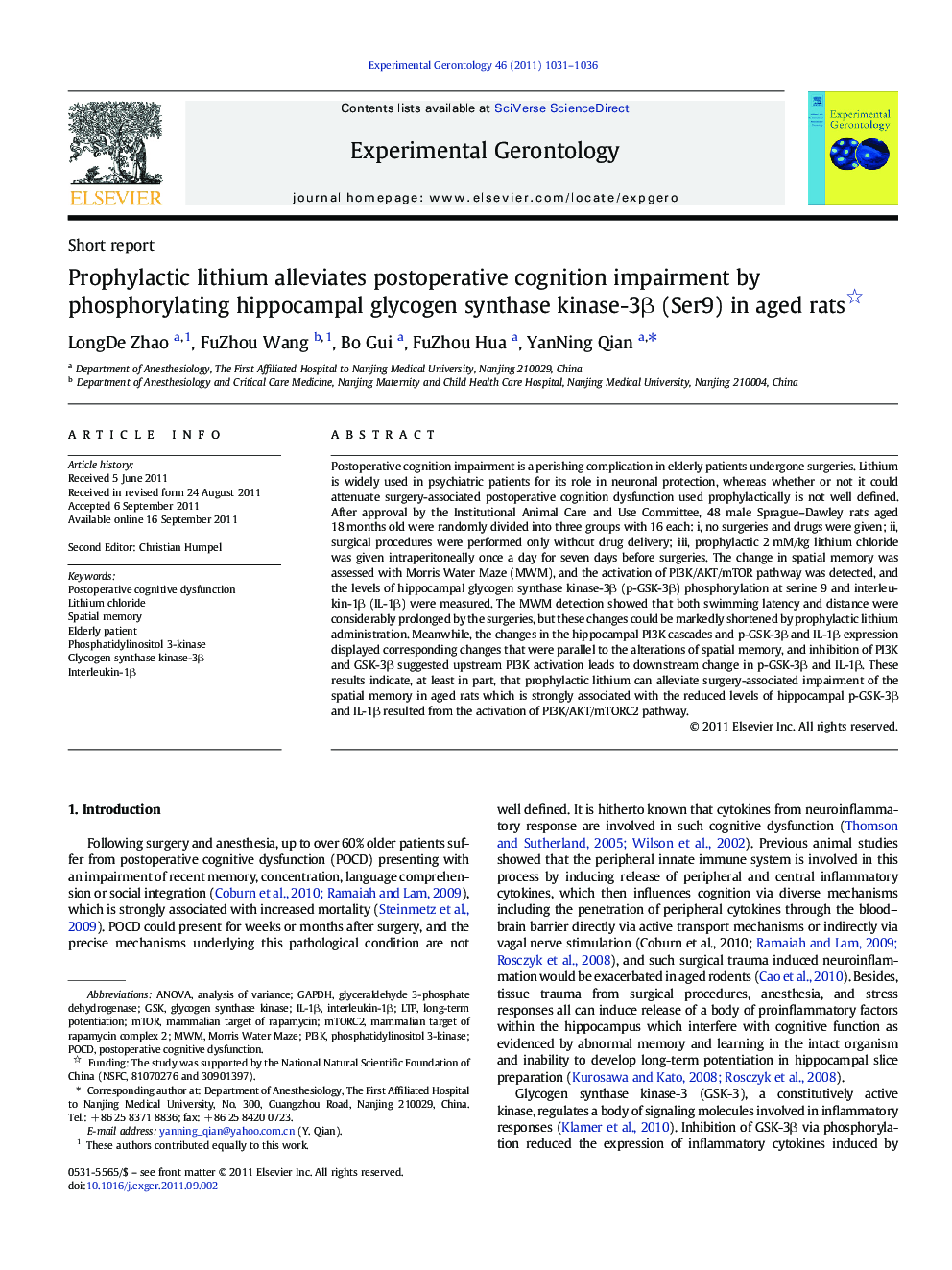| Article ID | Journal | Published Year | Pages | File Type |
|---|---|---|---|---|
| 1906457 | Experimental Gerontology | 2011 | 6 Pages |
Postoperative cognition impairment is a perishing complication in elderly patients undergone surgeries. Lithium is widely used in psychiatric patients for its role in neuronal protection, whereas whether or not it could attenuate surgery-associated postoperative cognition dysfunction used prophylactically is not well defined. After approval by the Institutional Animal Care and Use Committee, 48 male Sprague–Dawley rats aged 18 months old were randomly divided into three groups with 16 each: i, no surgeries and drugs were given; ii, surgical procedures were performed only without drug delivery; iii, prophylactic 2 mM/kg lithium chloride was given intraperitoneally once a day for seven days before surgeries. The change in spatial memory was assessed with Morris Water Maze (MWM), and the activation of PI3K/AKT/mTOR pathway was detected, and the levels of hippocampal glycogen synthase kinase-3β (p-GSK-3β) phosphorylation at serine 9 and interleukin-1β (IL-1β) were measured. The MWM detection showed that both swimming latency and distance were considerably prolonged by the surgeries, but these changes could be markedly shortened by prophylactic lithium administration. Meanwhile, the changes in the hippocampal PI3K cascades and p-GSK-3β and IL-1β expression displayed corresponding changes that were parallel to the alterations of spatial memory, and inhibition of PI3K and GSK-3β suggested upstream PI3K activation leads to downstream change in p-GSK-3β and IL-1β. These results indicate, at least in part, that prophylactic lithium can alleviate surgery-associated impairment of the spatial memory in aged rats which is strongly associated with the reduced levels of hippocampal p-GSK-3β and IL-1β resulted from the activation of PI3K/AKT/mTORC2 pathway.
